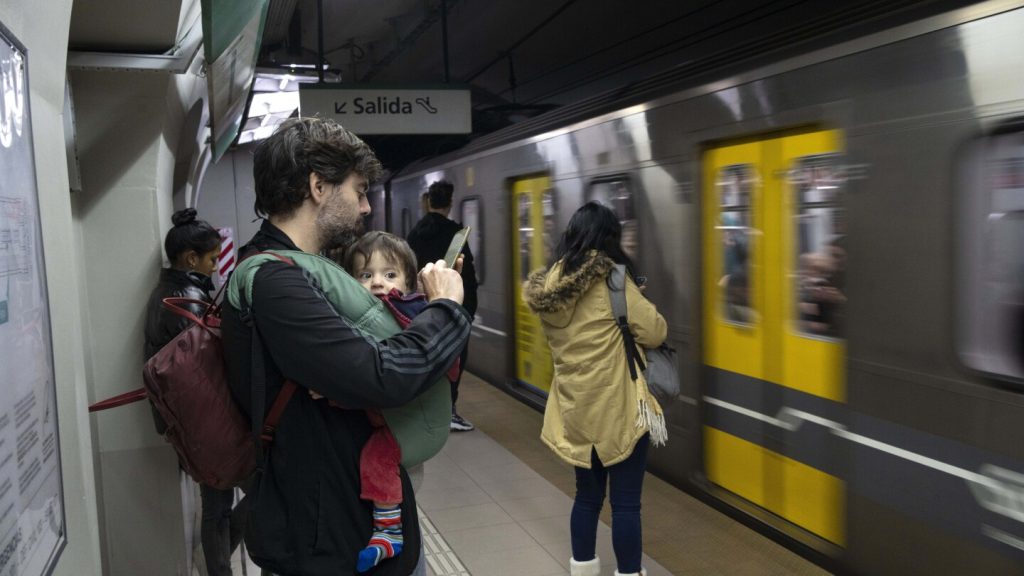Commuters in Buenos Aires were shocked by a sudden 360% increase in subway fares, implemented as part of President Javier Milei’s budget austerity campaign in Argentina. The increase comes amidst a challenging economic situation in the country, with hyperinflation and recession causing hardships for ordinary citizens. Many commuters expressed frustration at paying more for a subway system that is deteriorating, with no visible improvements in service quality. The drastic fare hike is part of Milei’s efforts to slash public spending and attract foreign investors, but it has resulted in higher inflation rates, making life more difficult for Argentines.
The price increase has reignited debates on public transportation fares in Latin America, where inequality is a pressing issue. Previous subway fare hikes in countries like Chile have led to social unrest and protests. In Buenos Aires, the cost of a single subway ride more than tripled overnight, causing concern among residents who rely on the affordable public transportation system. The government’s decision to cut subsidies for public transportation has led to a series of price hikes in recent months, affecting not only the subway but also buses and trains in the city.
Municipal officials in Buenos Aires have announced a further increase in subway fares in the coming months, with prices set to reach 757 pesos by August 1st. The aim is to minimize the impact on commuters’ wallets, but the overall trend of rising transportation costs is causing distress among residents. Cheap fares have long been a benefit for many Buenos Aires residents, especially those who need to commute long distances for work. However, the government argues that it can no longer afford to maintain these subsidies due to the country’s financial crisis.
The Buenos Aires subway system, known as Subte, has a long history as one of the oldest in South America. While it was once a symbol of the city’s wealth and modernity, in recent years it has fallen into disrepair. The combination of deteriorating infrastructure and higher fares has put pressure on commuters who rely on the subway for their daily transportation needs. As the government implements austerity measures and deregulation, the impact on everyday citizens is becoming more evident, with rising costs and inflation adding to their financial burdens. The future of public transportation in Buenos Aires remains uncertain as economic challenges persist.


